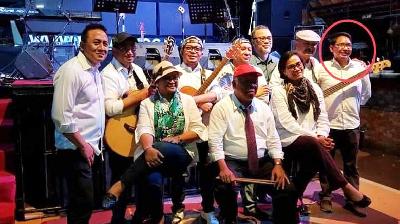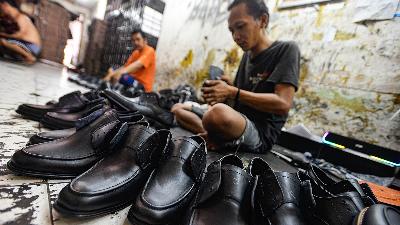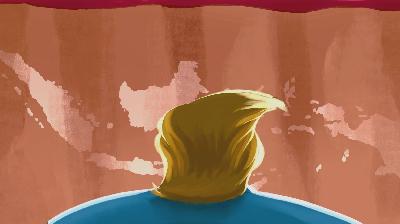Prabowo’s Duplicity over Human Rights
Monday, November 18, 2024
The new government is trying to erase traces of past human rights violations. This hurts the victims and their families.
arsip tempo : 174556624627.

IN order to present a clean face regarding human rights, the administration of Prabowo Subianto is showing two faces. The first: establishing a special ministry, but at the same time, the government is also trying to remove traces of a number of gross human rights violations in the past.
This duplicity endangers the future. The Constitution clearly states that the human rights of every citizen are protected. As written in Article 28A of the 1945 Constitution, every individual has the right to maintain their lives and livelihood.
Efforts to remove traces of human rights violations began right at the start of this administration. There are indications that the government has been pressuring the National Commission on Human Rights (Komnas HAM) to not declare the 2004 murder of activist Munir Said Thalib and the 2001 massacre of people in Aceh at the Bumi Flora oil palm plantation as gross human rights violations. Komnas HAM is currently finalizing the report of its investigation of these two incidents.
In August this year, before Prabowo was inaugurated as president, Mugiyanto Sipin, who had previously been a victim of abduction, organized a meeting between the families of the 1998 forced disappearance victims and senior members of the Gerindra Party. Mugiyanto is now Deputy Human Rights Minister.
Mugi is deputy to Natalius Pigai, who was once a member of Komnas HAM. He sparked controversy because he questioned the low level of funding for his ministry. And it appears that Pigai was given his post in government as ‘fair recompense’ for his defense of Prabowo in the face of allegations of committing human rights violations.
In 2008, Komnas HAM designated 12 cases of gross human rights violations, including the forced disappearances of activists and students. This incident, which started the collapse of the New Order regime in 1998, involved Special Forces Command, at the time led by Prabowo. The Officers Honorary Council, established by the Commander of Indonesian Armed Forces in 1998, concluded that Prabowo had ordered his men to arrest and detain nine activists.
Ministers are now reported to be preparing a ‘white book’, or official account of Prabowo’s connection with the events of 1998. This book is being compiled by former activists in order to absolve Prabowo from blame over the kidnapping of activists. As well as this, Prabowo’s administration plans to close a number of human rights violation cases by means of reconciliation through compensation and rehabilitation.
This lack of perspective regarding the protection of human rights was also apparent from the statement of Coordinating Minister for Legal, Human Rights, Immigration and Correction Affairs, Yusril Ihza Mahendra. A day after he was appointed, he said that there were no gross human rights violations in the 1998 incident. Yusril’s statement directly contradicts the results of the Komnas HAM investigation.
These efforts to whitewash the past hurt the victims and their families. The Thursday Action, a demonstration by families of the people shot at the Semanggi Interchange, Jakarta in 1998, has taken place almost 850 times since 2007. They voice their concern about law enforcement.
Justice for the victims will only be obtained by uncovering the truth through a legal process against the people responsible. Indonesia is like a realization of the warning issued by Milan Kundera, a Czech writer exiled in France, that “The struggle of man against power is the struggle of memory against forgetting.”











